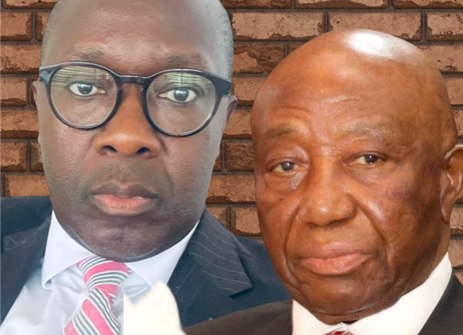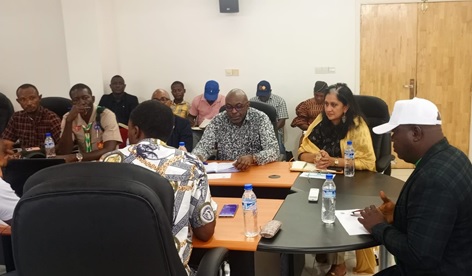MONROVIA, LIBERIA – In a recent statement, Gbarpolu County Senator Amara Konneh expressed his dissatisfaction with the performance of the Unity Party-led government under President Joseph Nyuma Boakai. Reflecting on the President’s first 100 days in office, which ended on May 1, Senator Konneh highlighted the administration’s shortcomings despite being handed a US$22 million spending package by the Legislature. According to NAYMOTE Partners for Democratic Development, Boakai met only 10 out of 100 commitments during this period. This performance, Konneh noted, is marginally better than former President George Weah’s, whom the Unity Party deemed a failure.
Senator Konneh pointed out three critical tasks that President Boakai needed to address from the outset: building domestic, regional, and international support for the new administration; assessing and stabilizing the country’s financial position with international aid; and forming an inclusive government with qualified professionals from various political backgrounds.
To aid this transition, Konneh submitted a non-partisan White Paper, crafted with the help of experienced Liberian professionals across various fields. This document, intended to guide the President through the early days of his administration, covered all the critical areas. Despite the effort and expertise that went into its preparation, the White Paper was ignored by President Boakai, much like a similar document had been by former President Weah.
Undeterred, Konneh and his colleagues used their influence and resources to arrange high-profile meetings for Boakai in Washington, D.C., with institutions like the State Department, Treasury, USAID, MCC, the World Bank, and the IMF. These efforts secured a commitment of approximately US$60 million in development financing, with plans to raise an additional US$40 million from the European Union and the African Development Bank. However, follow-up was crucial for disbursement, and according to Konneh, the necessary steps were neglected.
Konneh recounted how the focus shifted once Boakai’s team returned to Liberia. Rather than implementing the inclusive hiring practices recommended in the White Paper, they prioritized securing positions for themselves and their allies. This disregard for a thorough vetting process for key technical positions has, in Konneh’s view, compromised the administration’s effectiveness.
The senator attributed this neglect to insecurity and entitlement within Boakai’s inner circle. Those who had supported Boakai from the shadows during the Weah administration were sidelined in favor of those with longstanding, overt commitments. This division, Konneh argued, has undermined the administration’s potential, as the so-called “outsiders” possess the critical skills and perspectives needed for effective governance.
Konneh wasn’t alone in feeling marginalized. Former Auditor General John Morlu, who had raised significant funds for the Boakai-Koung ticket and provided his own transition recommendations, experienced similar exclusion. Both men were criticized for their vocal support for essential reforms and subsequently distanced from the President’s team.
Despite this, Konneh remains committed to his constitutional duty to hold the Executive accountable. He noted that he had supported the President’s budget proposals and confirmed all but three of his nominees, demonstrating his willingness to collaborate for the country’s benefit. His criticisms, he emphasized, are rooted in a desire to see the Boakai administration succeed.
Konneh expressed deep disappointment with the administration’s failure to inspire and effectively govern. He listed several missteps, including issues with asset recovery, petroleum product surcharges, tenure law violations, and ineffective handling of the National Security Agency and Liberia Electricity Corporation (LEC). These failures, Konneh warned, are eroding public confidence and momentum.
However, Konneh believes there is still time to turn things around. He urged President Boakai to consult more broadly and inclusively, drawing on the expertise of patriotic Liberians beyond his immediate circle. This broader consultation, Konneh argued, would lead to better decision-making and governance.
In closing, Konneh reaffirmed his commitment to supporting President Boakai and the Unity Party, emphasizing that his criticisms are meant to highlight challenges and offer solutions for the betterment of Liberia. He vowed to continue fulfilling his constitutional duty, advocating for the interests of the nation he loves.







